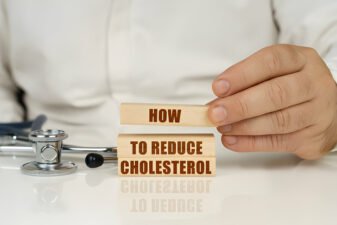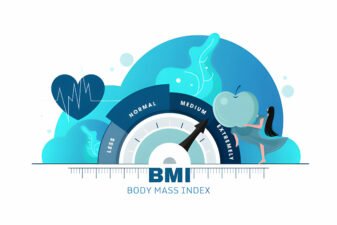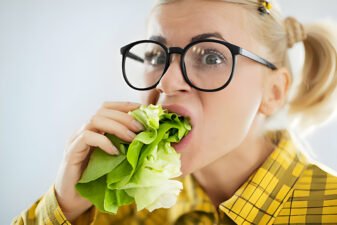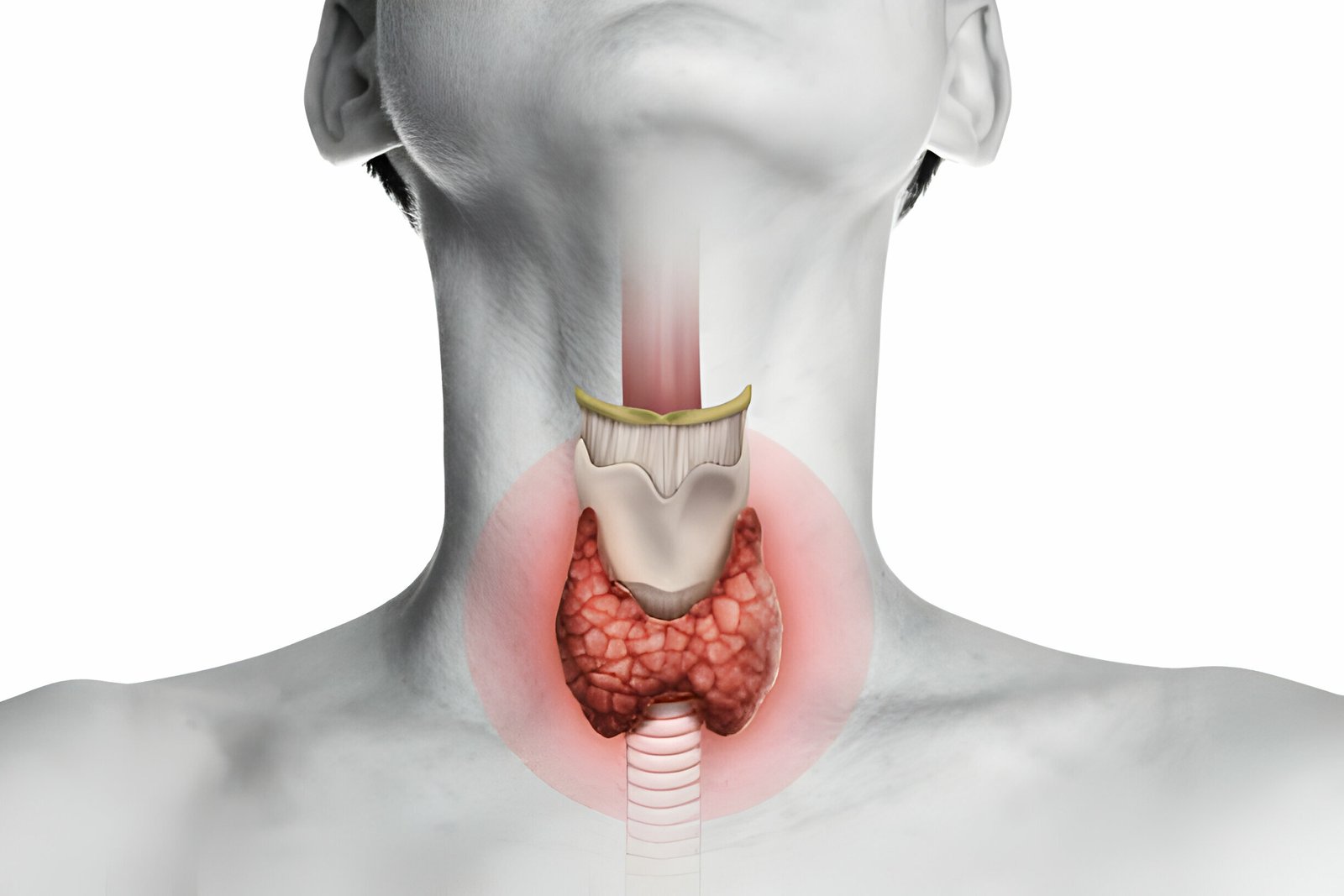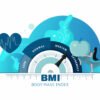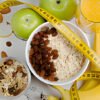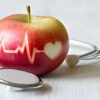Hypothyroidism, or under-active thyroid, is 10 times more common in women than men. It is most common in women aged 40 to 50. In my experience, even while on medication, weight loss is slower than normal, so it is VERY important to stick closely to your diet plan AND take regular exercise.
Symptoms of Hypothyroidism (Under-Active Thyroid)
The signs and symptoms of hypothyroidism vary in severity and typically develop gradually over months or even years. They may include:
– Extreme tiredness
– Weight gain
– Constipation
– Hoarseness of voice
– Intolerance of cold
– Swelling of face: puffy eyes, dry, thickened skin
– Thinning of hair
– Heavy menstrual periods (women)
– Some people with hypothyroidism develop a swelling in the neck
Note: If you think you suffer from undiagnosed hypothyroidism, you must see your doctor. Please also check with your doctor before starting any diet program.
General Dietary and Weight Loss Advice About Hypothyroidism
Check Your Thyroid Levels Regularly
Make sure your thyroid levels are checked regularly, so your medication is kept at the correct dosage. Thyroid function can change quite quickly and needs to be monitored at least every 6 months.
Get Active
Take regular exercise. Physical activity is especially important if you suffer from hypothyroidism. It is essential in order to help speed up your metabolism and increase weight loss. A daily 30 minute workout, building up to 45 minutes is fine. If you currently take regular exercise, it will help to increase what you do by just 10 minutes extra per day.
Selenium
It is also believed to help if you increase your selenium intake. This can be done by eating foods such as whole wheat bread, bran, Brazil nuts, tuna, onions, tomatoes and broccoli. Include some of these foods on a regular basis.
Helpful Foods
Foods that are helpful for the thyroid function are: carrots, spinach, apricots, asparagus, olive oil, avocado, sunflower seeds, whole grain cereals, bananas, oily fish, so choose meals that include these foods.
Unhelpful Foods
Foods to eat LESS of as they may interfere with iodine uptake are: cabbage, kale, broccoli, kohirabi, mustard, lima beans, linseed, sweet potato, peanuts, soy products, so keep these to a minimum. You don’t need to cut them out completely.
Avoid Stimulants
Avoid caffeine drinks like coffee, cola; avoid stimulants like smoking and alcohol as these all effect the thyroid function.
Reduce Stress
Stress is a major factor and is thought to be a contributing factor to the development of hypothyroidism. One of the best ways to reduce stress is to take regular exercise.
More Information About Hypothyroidism and Diet
Iodine
It is well documented that a diet low in iodine is associated with hypothyroidism or under-active thyroid. The best supply of iodine is from sea salt and seaweed. In Japan, for instance, the daily intake of iodine from seaweeds is estimated to average 3mg per day and thyroid disorders are known to be extremely rare. The American Food & Drug Administration has limited iodine in supplement form to 0.15mg although as much as 2,400 mg has been given daily to children for five years without any noticeable ill-health effects. However do NOT take ANY iodine supplements without first consulting your doctor because excessive amounts of iodine can also lead to hypothyroidism.
Iodine With Vitamin E
When people with underactive thyroid glands take 4mg of iodine and 600 units of vitamin E, it has been found that the amount of iodine taken up by the gland increases and the quantity of thyroid hormones in the blood also increase “almost immediately and markedly”.
Brassica Vegetables
Cabbage and other brassicas vegetables (eg. Chinese leaves, brussel sprouts, turnips and kale) contain compounds known as ‘thioglucosides’ which, if taken in excess can disrupt the function of the thyroid gland. However, it should be stressed that this tends to occur only in people whose diets are already deficient in iodine.
Zinc
An Italian study shows that supplementing the diet with zinc improves thyroid function. Many patients with hypothyroidism have low levels of zinc, and the study demonstrated that over 50 percent of patients given zinc supplementation experienced improved thyroid function which reduced the incidence of clinical hypothyroidism.
Hypothyroidism and Toxic Materials
- Preliminary studies have found an association between multiple chemical sensitivities and hypothyroidism. One study found a correlation between high blood levels of lead, a toxic heavy metal, and low thyroid hormone levels in people working in a brass foundry. Many of these people also complained of depression, fatigue, constipation, and poor memory (symptoms of hypothyroidism).
- Occupational exposure to polybrominated biphenyls and carbon disulfide has also been associated with decreased thyroid function
More Information About Weight Management

